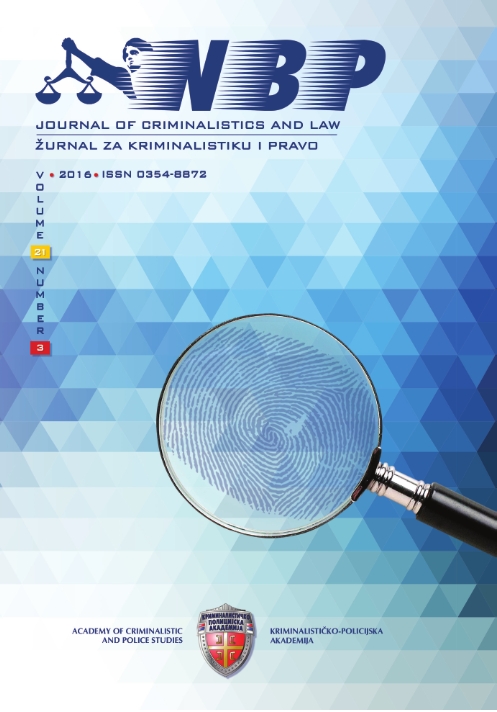Radnja izvršenja krivičnog dela poreske utaje
Offence of Tax Evasion
Author(s): Radosav RisimovićSubject(s): Law, Constitution, Jurisprudence
Published by: Kriminalističko-policijski univerzitet
Keywords: tax evasion; giving false data; failure to report; concealment; illegal income
Summary/Abstract: Giving false data exists as a form of criminal offence if the offender submits a tax application which contains false data regarding legally acquired income, on items or other facts that are relevant for determining tax liabilities. This form of criminal offence exists if the offender shows the revenue in smaller amounts comparing to the actual income, the items that are the property of the tax payer are displayed in a smaller value, the expenses are shown larger than the actual ones or other false facts that affect the amount of tax are displayed. For example, the accused showed in invoice the value of sold vehicles that is almost twice lower than the price paid. The act will be realized if false information is given in written tax application, or if subsequently false information requested by the tax authorities is provided. This offence can be done only in respect of legally acquired income, although on this issue there is no generally accepted opinion in the theory of criminal law. Other form of committing the tax evasion offence is failure to report legally acquired income, or objects or other facts that are important for determining tax liabilities, in the case of mandatory application. The offence is committed, if the offender does not submit a tax application in timely manner or submits an incomplete application, i.e. does not enter all relevant information which may affect the decision on the tax amount. For example, the offender does not indicate all income sources. At the end, the offender may commit tax evasion by 'concealing information otherwise' which are related to the determination of tax liabilities. Concealment is any action with the purpose of preventing the tax authorities to get the data that are relevant for determining tax liabilities. For example, a tax payer hides the financial reports and thus prevents the tax authorities to determine the tax liability.
Journal: NBP – Nauka, bezbednost, policija
- Issue Year: 21/2016
- Issue No: 3
- Page Range: 1-17
- Page Count: 17
- Language: Serbian

